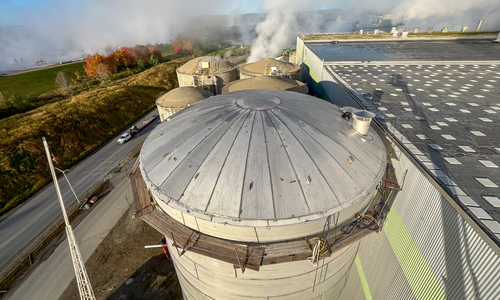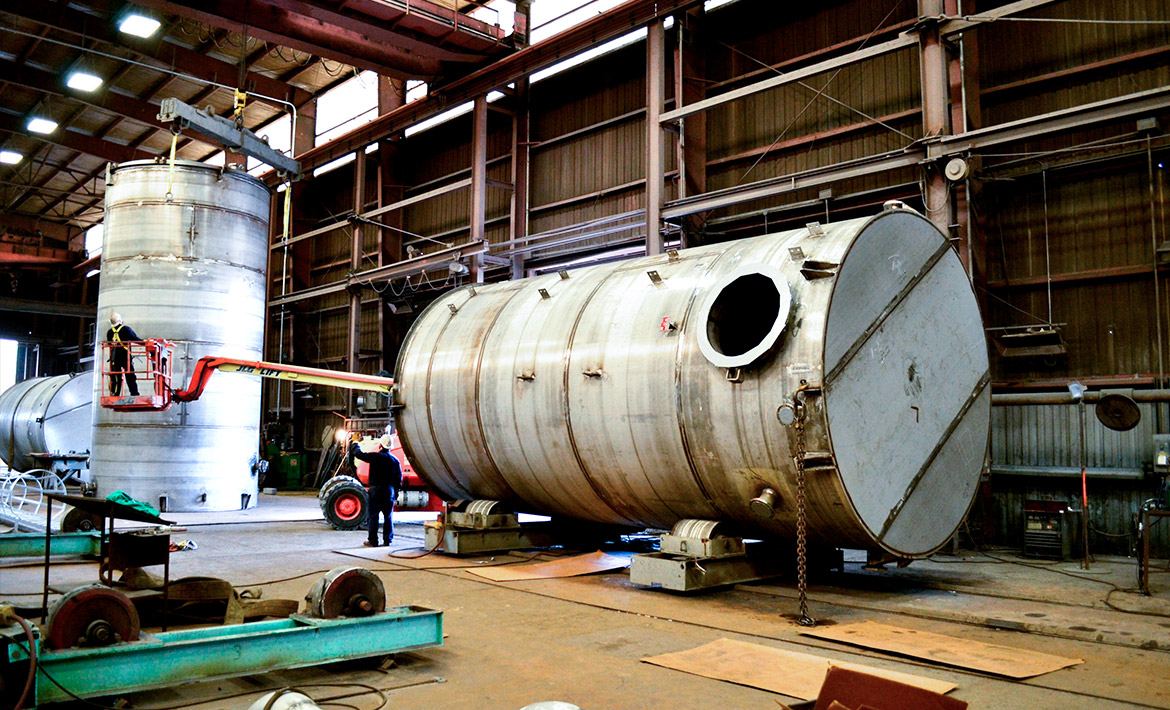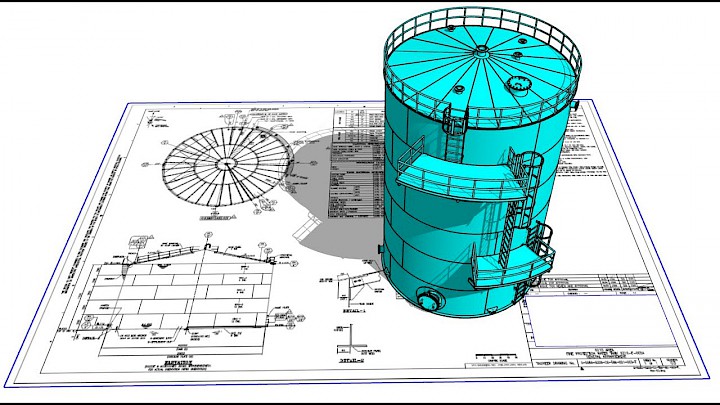Why API 650 Welding Inspection Is Essential in Ensuring Strong and Durable Welds
The Benefits of Welding Assessment for Improved Security and Performance
Welding inspections are essential for ensuring that frameworks fulfill rigorous sector requirements. They play an important function in identifying defects early, thereby boosting safety and security and lowering the danger of devastating failures. Additionally, these inspections can bring about substantial expense savings by preventing pricey repair services and downtime. As organizations go for enhanced efficiency and integrity, the significance of a robust examination process can not be overstated. What various other benefits might arise from a commitment to comprehensive welding examinations?
Making Sure Compliance With Sector Criteria
Assuring compliance with sector requirements is essential for preserving quality and safety and security in welding projects. Sticking to recognized procedures not only secures workers however also improves the durability and efficiency of the last item. Welding assessments performed at different phases of the process assistance recognize any variances from these standards, making it possible for timely restorative activities. This positive strategy reduces the danger of failings that might arise from second-rate workmanship.
Conformity with sector standards fosters trust fund amongst stakeholders, including clients, governing bodies, and the labor force. It signifies a commitment to quality and liable practices, which can result in boosted service possibilities and an affordable side in the marketplace - API 650 Welding Inspection. Regular examinations additionally guarantee that materials and methods used align with the most current technical innovations and safety and security laws. Inevitably, adherence to sector criteria is not simply a regulative requirement but a cornerstone of quality guarantee in welding tasks
Enhancing Safety And Security With Early Detection of Problems
While the main goal of welding inspections frequently fixates conformity, they play a crucial duty in improving security by allowing the early discovery of flaws. Determining issues such as insufficient blend, fractures, or porosity during evaluations can greatly mitigate the danger of devastating failures. Early discovery permits timely treatments, making sure that malfunctioning welds do not compromise architectural stability.
Additionally, organized evaluations cultivate a culture of safety within companies by highlighting the significance of quality assurance. This positive approach not just protects workers but also safeguards the surrounding setting. Routine examinations can expose fads in problem event, permitting changes in welding techniques and training programs to resolve underlying issues.
Consequently, welding assessments function as a critical secure, strengthening total safety and security and performance by recognizing defects before they intensify into major threats. This commitment to top quality straight contributes to the long life and reliability of bonded structures.
Reducing Expenses by Stopping Failures
By executing extensive welding evaluations, organizations can properly decrease expenses connected with failures and revamp. The aggressive recognition of flaws throughout the welding process reduces the threat of tragic failings that can bring about pricey repairs or replacements. Early discovery enables prompt treatments, which protects against the rise of small problems into major problems that strain resources and budgets. Additionally, by ensuring that welds meet defined criteria, organizations can prevent delays in job timelines triggered by the need for extensive rework or added assessments later while doing so. This not just conserves money yet additionally improves operational performance. In addition, an online reputation for high quality workmanship can lead to enhanced customer satisfaction and repeat organization, additional adding to economic stability. Overall, buying welding evaluations is a critical technique that fosters price savings while securing the integrity of welded structures.
Improving Efficiency and Longevity of Frameworks


Welding evaluations play a necessary duty in boosting the performance and longevity of structures, as they verify that welds are implemented to the highest standards. By identifying problems early in the welding procedure, examinations prevent weaknesses that could compromise structural integrity. This proactive approach assurances that the materials used meet required specifications, thereby optimizing their load-bearing capacity and resilience.
Moreover, consistent monitoring of welding practices adds to the overall quality of construction tasks. When welds are verified for conformity with market requirements, the potential for fatigue and failing with time is substantially lowered. Frameworks that are developed with correctly inspected welds are most likely to experience fewer maintenance concerns and improved web link sturdiness.
Ultimately, strenuous welding examinations not only bolster the prompt effectiveness of a framework however also expand its operational lifespan, supplying long-term worth to both end-users and builders alike.
Promoting a Society of High Quality and Integrity
A commitment to high quality and integrity in welding methods substantially adds to the total success of construction jobs. When companies prioritize these worths, they cultivate a society that encourages careful attention to detail and adherence to sector standards. This society not just enhances the skill level of welders however likewise promotes responsibility and synergy amongst all stakeholders associated with the job.

Routine welding examinations offer as a keystone in this social shift, strengthening the value of constant performance and precaution (API 650 Welding Inspection). By carrying out extensive assessment procedures, companies can identify potential flaws early, mitigating threats and staying clear of pricey rework. An emphasis on high quality and reliability infuses self-confidence among customers and companions, leading to more powerful partnerships and improved credibilities.
Connections Eventually, fostering a society of quality and integrity in welding methods not only elevates task results yet likewise guarantees long-lasting sustainability and success in the construction sector.
Frequently Asked Inquiries
What Certifications Should a Welding Examiner Have?
A welding inspector must have relevant qualifications, such as AWS CWI or CSWIP. Additionally, they must have experience in metallurgy, welding procedures, and evaluation strategies, along with solid logical skills and interest to information for reliable evaluations.

How Frequently Should Welding Inspections Be Carried Out?
Welding assessments need to be performed regularly, ideally after each significant phase of the welding procedure. In addition, routine examinations need to redirected here take place based upon task needs, solution conditions, and regulative requirements to guarantee ongoing quality and safety.
What Devices Are Made Use Of During Welding Inspections?
Welding inspections make use of numerous tools, including ultrasonic testers, magnetic fragment testers, aesthetic assessment tools, and radiographic equipment. Each device offers a certain function, guaranteeing weld quality and architectural honesty with extensive evaluation and assessment.
Can Welding Inspections Be Executed From Another Location?
Welding examinations can undoubtedly be carried out from another location making use of sophisticated technologies such as visit this page drones and specialized electronic cameras. These tools enable assessors to evaluate welding quality and honesty from a distance, improving performance and security in various atmospheres.
What Are the Common Kinds of Welding Problems?
Usual types of welding defects include porosity, cracks, insufficient combination, damaging, and slag inclusion. These issues can jeopardize the honesty and stamina of welds, bring about prospective failings in structural applications otherwise addressed appropriately.
Welding assessments are essential for making sure that structures satisfy rigid industry requirements. Welding examinations conducted at different phases of the process assistance recognize any kind of deviations from these requirements, making it possible for timely restorative activities. Welding examinations play a vital duty in enhancing the performance and durability of frameworks, as they confirm that welds are implemented to the highest standards. Welding evaluations must be performed frequently, preferably after each substantial stage of the welding process. API 650 Welding Inspection. Welding inspections use different devices, including ultrasonic testers, magnetic bit testers, visual examination devices, and radiographic tools